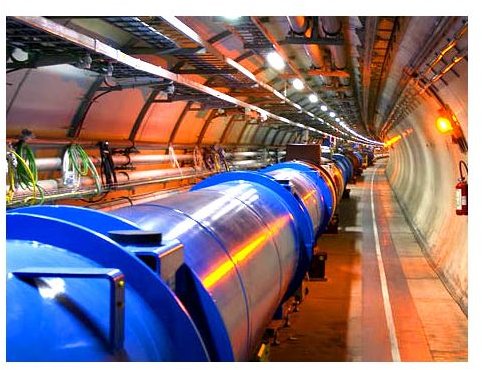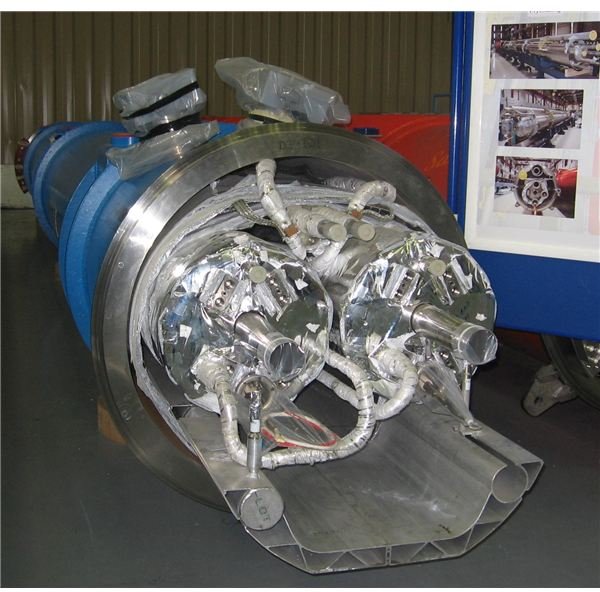What Happened to the Large Hadron Collider? Its Current Status, Delays, and Problems CERN Faces
What Happened to LHC?
Scientists and engineers alike at the European Organization for Nuclear Research, or CERN, were greeted on September 19, 2008 with troubling news: The Large Hadron Collider (LHC) encountered a failure known as a “quench,” which forced them to halt the massive physics experiment.
The problem, after a thorough investigation, has been linked to a leak in the machine’s liquid helium source, which is used to cool down LHC’s super-cooled, superconducting magnets. This led 100 of these magnets to overheat, not to mention the loss of the machine’s vacuum conditions.
For those not quite familiar with the experiment, LHC uses superconducting magnets to steer particle beams around its 27 kilometer-long tunnel. One of the project’s main goals is to recreate the scenario just moments after the Big Bang. Alongside that grand target, the LHC project also hopes to unravel the mysteries surrounding the yet-to-be observed Higgs boson particle and dark energy.
How Does This Affect LHC?

This latest development is in stark contrast with the reports that came out in early September 2008, when the collider went online. On that day, CERN announced that they had successfully fired the first beams around the underground tunnel. The experiment’s most crucial step, however, wherein those beams collide head on, had not been achieved, due to the aforementioned incident. CERN, in a subsequent update, added that repairs will probably be finished and that LHC will go back online by early spring of 2009.
While this is certainly unwelcome news, not only for the people behind the project but also for the entire world, it is worth mentioning that this is not the first time the Large Hadron Collider has encountered problems. As a matter of fact, prior to the quench, CERN engineers had just recently replaced one of the machine’s defective transformers which slowed down the project’s early success.
More Problems?

Aside from those already mentioned, there are a few other noteworthy issues that have contributed to the delay of the LHC experiment; however, there is little doubt of the eventual success of the collider. In fact, more than anything else these setbacks serve as a testimony to the perseverance and patience of the people behind this ambitious project. Past setbacks include:
- Cost Over-runs: LHC’s original budget, which was around 2.7 billion Euros, was approved in 1995. In 2001, however, a study revealed that the LHC project was still in need of an additional 330 million Euros, and that the total cost of the project might reach 6 billion Euros. This delayed the completion date from 2005 to 2007.
- Socio-Political Issues: United Kingdom’s Chief Scientific Officer, David King, is a well-known detractor of LHC. He argued that the funds for the project could have been more beneficial if they were diverted to earthly problems, such as climate change, poverty, and overpopulation.
- A technician was killed when a crane load fell on him inside the LHC tunnel.
- During one of the pressure tests involving the machine’s magnet assemblies, a cryogenic magnet support broke.
What Now?
Even though the scientists and engineers working on the Large Hadron Collider are disappointed with the problems their project is currently facing, they are by no means disillusioned or downhearted. Even this early, there are plans to upgrade LHC. The proposal is projected to take place around 2012 and will effectively rename the machine to Super LHC.
References
https://care-hhh.web.cern.ch/care-hhh/SuperLHC_IRoptics/IRoptics.html
https://www.fnal.gov/pub/today/lhc_magnet_archive.html
https://user.web.cern.ch/user/QuickLinks/Announcements/2005/Accident.html
https://ngm.nationalgeographic.com/2008/03/god-particle/achenbach-text
https://news.bbc.co.uk/2/hi/science/nature/7626944.stm
https://www.timesonline.co.uk/tol/news/uk/science/article4722261.ece
https://blog.nanovic.com.au/wp-content/uploads/2008/05/lhc_hall_1.jpg
https://upload.wikimedia.org/wikipedia/commons/7/78/CERN_LHC_Magnet_Factory1.jpg
https://static.guim.co.uk/sys-images/Environment/Pix/pictures/2007/11/27/kingsillitoearticle.jpg
